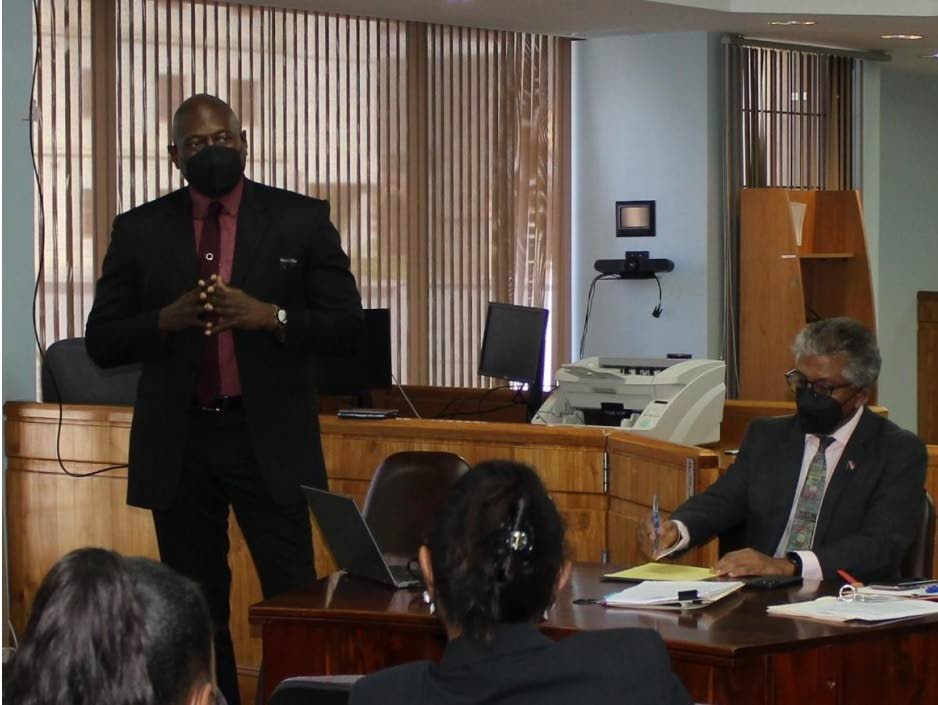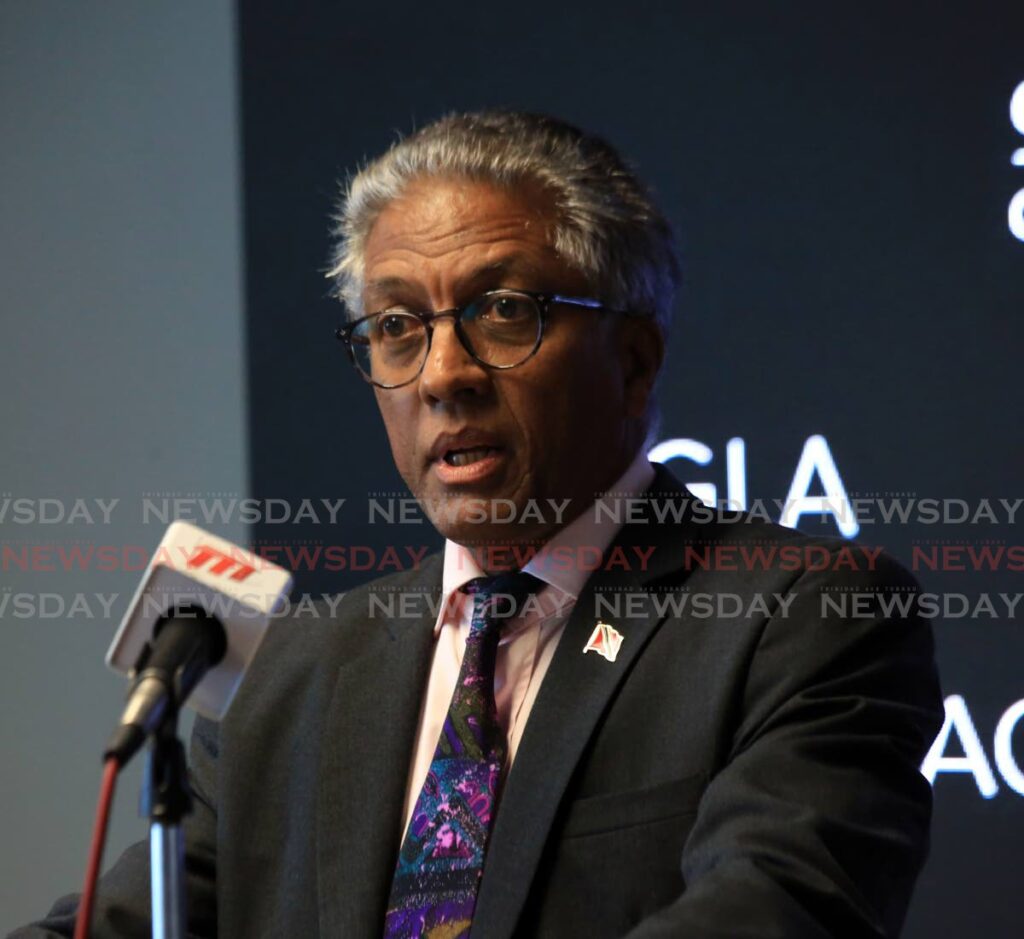DPP's staff crisis as prosecutors leave to be judges

STAFF shortages at the Office of the Director of Public Prosecutions (DPP) have reached critical levels resulting in the department being unable to properly man all the courts in TT.
Within the last two weeks, there have been reports that prosecutors have not been appearing for some case-management conference (CMC) hearings before judges, excluding trials.
Newsday understands that following the departure of three senior prosecutors in December to take up judgeships in TT and Belize, with two mid-level attorneys resigning, efforts are being made to train the existing complement of prosecutors to handle cases at the magisterial, High Court and Appeal Court levels.
Newsday was told all prosecutors, regardless of how long ago they were called to the bar, need the training to prosecute in the criminal courts.
“So they are now training the new state counsel I’s, who have been there for six months, to go to the magistrates’ courts to take the places of the senior staff who now have to go up to the High Court. Those senior magistrates’ court officers are only now being trained to go up to the High Court.”
Newsday was also told the situation should be rectified by March which will allow prosecutors to appear before judges for CMCs and other trial issues in the assizes.
Questions were sent to DPP Roger Gaspard, SC, but he is yet to respond.

Newsday understands that Gaspard has written to the Chief Justice on the issue as his department does not have sufficient staff to attend the increased number of criminal courts and case management hearings.
However, judicial sources said the absence of prosecutors at the High Court for the past weeks was troubling and resulted in a waste of time and money.
“Hundreds of jurors were summoned, missing a day's work and pay...And, this is apart from the waste of money by the Judiciary.”
Newsday was told that the DPP would have known since last October that there were new judges to be appointed when the Judicial and Legal Service Commission wrote to him informing him that two of his deputies – Tricia Hudlin-Cooper and George Busby – were leaving the State’s criminal law department.
A third senior prosecutor – assistant DPP Nigel Pilgrim – was appointed a judge in Belize and he takes up the position this month.
“He saw appointments take place in December.”
Between December and January, 14 new judges were appointed and have been assigned to the criminal and civil divisions of the Judiciary, increasing the complement of Puisne judges of the Supreme Court to 42.
There was an expectation that all courts would be manned by prosecutors but, “We are now in February and all the courts are not manned.”
At present, there are 58 prosecutors at the DPP’s office and Newsday was told that it was inevitable that some of them would leave for more lucrative positions.
Other than having senior prosecutors leave to take up judgeships, others have also found themselves accepting positions at the public defenders’ department, an arm of the Legal Aid and Advisory Authority which focuses on criminal matters mainly at the High Court and Appeal Court levels, although there are a few exceptions at the magistrates’ court.
“The PDD (Public Defenders Department) is recruiting so more people will leave (the DPP’s department).”
Criminal Bar Association concerned
President of the Criminal Bar Association Israel Khan, SC, said it was an “unfortunate situation.”
He called for the matter to be treated “expeditiously,” but supported the move for “inexperienced” state counsel to receive the necessary training to appear in the criminal courts.
He said no doubt DPP Gaspard would have indicated to the Chief Justice the predicament his department faced.
Khan also called on the Executive to “act with haste” to ensure that the DPP’s department was properly staffed so that prosecutors can shoulder their “onerous duties” efficiently.

“If the Executive does not move swiftly to give the DPP the necessary resources of staff and plant, this will be the beginning of the complete breakdown of the criminal justice system in this country.”
A year ago, in an affidavit in support of a stay of an order in the bail for murder accused appeal by the State, Gaspard spoke of the manpower shortage in his department.
At the time, he said his department had 50 attorneys and two had tendered their resignations with two others being deemed medically unable to be deployed for court hearings.
The remaining 46 attorneys conduct prosecutions of serious crimes, including murder, and money laundering among others, in the 13 magisterial districts, giving them the responsibility for approximately 39 summary courts.
“These prosecutors appear in every criminal matter in the children’s courts, trials and almost daily case management in the nine criminal high courts as well as in criminal and magisterial appeals.
“These prosecutors also advise the police in complex criminal matters and appear in cash forfeiture applications for the State.”
Gaspard referred to Cabinet Minute No 1450, dated May 23, 2013, and approved on May 29, 2013, which proposed a new organisational structure for the DPP’s department, providing for 137 attorneys.
He also said when the Administration of Justice (Indictable Proceedings) Act was fully proclaimed, his department would be responsible for the conduct of “every single indictable offence in Trinidad and Tobago, both at trial and sufficiency hearing. A vast majority of those matters, at the preliminary inquiry, are prosecuted by the police.
“...At this time,” he said, the Office of the DPP is “almost three times under its Cabinet-sanctioned strength.”
In August 2022, Attorney General Reginald Armour, SC, said 20 new attorneys were appointed to the DPP’s department to address staff shortages after he was briefed by Gaspard on understaffing and space issues.
Soon after his appointment, Armour visited the DPP’s department where he spoke with Gaspard and his staff on “ matters of administrative concerns,” among others, a statement from the ministry said at the time.
“The Honourable Attorney General reiterated his commitment to the Office of the DPP and assured respect would be maintained. He emphasised that discussions such as these were the first of many to come, with the objective of giving further support and enhancing available resources,” the release said.

Comments
"DPP’s staff crisis as prosecutors leave to be judges"